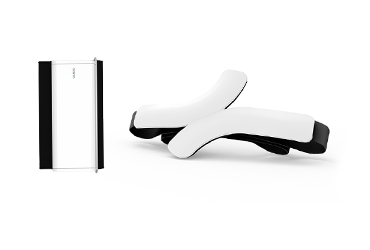Atrial fibrillation (also known as AFib or AF) is a rather common heart arrhythmia condition affecting mostly older adults, causing heart palpitations, occasional chest pain, or (in lucky cases) no symptoms at all. However, AFib has the potential to grow into a severe disorder that causes intense pain, dizziness, or blackouts which can regularly hinder a person’s ability to function.
If your AFib is so severe that it prevents you from living and working normally, then it is possible you may qualify for disability benefits. Continue below to see how someone with AFib can qualify, and how you can start your application as soon as possible.
The Social Security Blue Book
When the Social Security Administration (SSA) looks at an applicant, they first compare their disorder to the SSA’s disability criteria, also called the Blue Book. This book is broken up into 14 sections, each pertaining to a certain kind of disorder in the body. Each section is broken up into listings which describe the symptoms a patient must exhibit to qualify with their disorder.
AFib is covered under “Cardiovascular Disorders” in Section 4.05: “Recurrent arrhythmias.” Here, it states that applicants can qualify if their AFib is:
- Not a symptom of a reversible cause or other treatable disorder
- Results in uncontrolled, recurring episodes of syncope (passing out) or near-syncope (almost passing out) due to irregularities in the heart
- Has not responded to treatment attempts
- Has been documented using electrocardiography
It can be difficult to tell at a glance whether or not your AFib qualifies under these conditions. Be sure to speak with your physician about your heart health and potentially get further testing to see if you may qualify under these terms.
Other Ways to Qualify with AFib
While the disorder can be very debilitating, it is unfortunately rare for people with AFib to qualify under the above Blue Book listing alone. However, there are a couple of different ways that a person with AFib can still qualify for benefits:
- Qualify through another listing: A severe heart arrhythmia like AFib is unhealthy for the heart to experience repeatedly. Thus, it is very common for those with AFib to develop other heart or body disorders due to the stress their heart is under. For example, those with severe AFib are more prone to heart attacks and strokes. If you experience one of these due to complications from your AFib, you are more likely to qualify for benefits because your symptoms may be covered under the “stroke” listing instead.
- Medical Vocational Allowances: If your AFib does not meet any Blue Book listing, but still prevents you from working and earning a living wage, then you may still qualify for full benefits under a Medical Vocational Allowance (MVA). To receive an MVA, you must demonstrate to the SSA that your condition is still severe enough to prevent you from returning to any work you are qualified to do. For example, someone with severe AFib who has worked their whole life as a construction worker may not be able to safely return to work due to their condition. Even if they don’t meet the Blue Book definition, they may still be deemed unfit to return to earn wages, qualifying them for an MVA.
Work Credit Qualifications
Because AFib is very uncommon early in life, the majority of applicants are adults with previous work experience. This work experience is necessary to determine whether or not you qualify for disability benefits, as well as the amount of benefits you would receive each month. For each quarter of a year a person works and pays taxes to the government, they earn a “credit”. Up to four credits can be earned each year — one for each quarter of regular work. The older you are, the more credits are required of you to qualify for benefits. For example, a 46-year-old with AFib would need 24 credits (6 years of work) to qualify, while a 58-year-old would need 36 credits (9 years of work) to get benefits.
If you would like to know how many credits you have acquired in your working years, you can call your local Social Security office to have a representative check for you.
Starting the Application
Once you have your paperwork, tests, and work history information ready, you can begin the application whenever you like. The simplest and fastest way to do this is by going to the SSA’s website and completing the application online. Here, you can save your progress, double-check typos, and work at your own pace. However, you can also complete the application in person at your local Social Security office. If you have questions or concerns about the application, you can get assistance from a loved one or call your local office at any time to speak with a representative.
If you worry you might be one of the many adults living with an undetected heart problem, you have options to start checking on your heart health from the comfort of your home. QardioArm smart blood pressure monitor not only measures your blood pressure levels but also checks for irregular heartbeat during your measurements and keeps a complete history of your readings. If you measure regularly and see frequent detection of irregular heart rhythm ask your doctor to investigate further. You can also use QardioCore, a wireless ECG monitor, which provides medical grade ECG data that can be shared with your doctor and cardiologist who can then easily look for any potential problems including Afib.
This article was written by the Outreach Team at Disability Benefits Help. They provide information about disability benefits and the application process. To learn more, please visit their website at http://www.disability-benefits-help.org.




